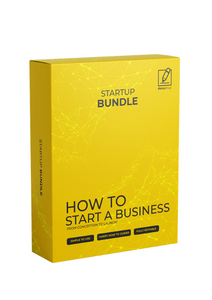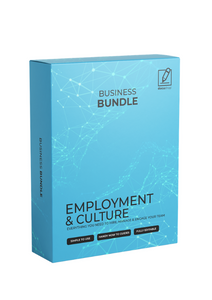Finding Business Funding
| Arna Van Ravestein
How to get business funding
One of the most common questions business owners and entrepreneurs ask is “how can I get more money to fund my business?” There are many ways to get the cash your business needs. Here are the top sources of funding and how to get it.
Top Funding Sources
Friends and family.
Simply ask those close to you for funding. This is where most people start.
Bootstrapping.
This type of business is self-funded. Entrepreneurs use their own money to grow the company. Facebook, Shopify and GoFundme all started out bootstrapping.
Equity Financing.
This is the process of raising funds by selling ownership into the company. Both publicly traded companies on stock exchanges and privately held businesses can seek equity financing. Preferred stock, common shares, warrants, and notes are examples of equity financing.
Venture Capital (VC).
Provided by venture capital firms, VC is a type of private equity financing specifically designed to give financing to companies at various levels of development. These would include start-ups, emerging companies and companies in business for a short time. VC firms tend to provide financing in exchange for equity in the company.
Angel Syndicates.
Angel syndicates are a type of venture capital fund specifically created for a single investment or business. Compared to typical VC’s, angel syndicates are typically less structured and tend to stay out of the day-to-day aspects of the business. Instead, they focus on the big picture. Angel syndicates prefer to specialize in a few select business sectors.
Family Offices.
Wealthy families that invest in businesses are often called Family Offices. The goal is to find long term, stable investments that provide a healthy return on their money. Unlike Angels, Family Offices invest in a wide variety of businesses, and aren’t required to use any specific investing rules or requirements. Unfortunately, Family Offices don’t advertise or have a website. Reaching them will require attending private equity events and networking.
Incubators and Accelerators.
Incubators and Accelerators perform many of the same functions, such as mentoring and giving advice. Both may provide other benefits such as the sharing of office space and financing.
While similar, they have one distinct difference: Incubators assist startups and businesses in their infancy, while Accelerators focus on adolescent businesses that have been in operation for a few years. (They might want a stake in the business if financing is requested).
Equity Crowdfunding.
Equity crowdfunding is the process of raising cash from a large group of individuals or individual investors. This is accomplished by selling notes into a company that’s not listed on a publicly traded stock exchange. This type of financing option gives the business excellent exposure and credibility because so many people are involved.
Reward Based Crowdfunding.
With this type of crowdfunding, a small amount of money is raised initially with the intention of getting a “reward” at a later date. Most reward-based crowdfunding consists of receiving the finished product or a token of appreciation. Crowdfunding is a popular method of obtaining funds but could be a challenge for companies who have trouble attracting customers.
Bank Loans.
To qualify for a bank loan, companies should be generating revenue. Newly formed companies or those making little may have a difficult time receiving a bank loan.
Government/Grant Funding.
Grants are funds disbursed by grant makers or government departments that don’t have to be repaid. To receive an application or written proposal (grant writing) is required. While popular, the competition for receiving grants and government funding is not easy: competition is fierce and completing the application can be a long, slow process. Grants may be available for female owned businesses, arts & culture, and indigenous founded businesses. Information on government funding can be found on various government websites.
Putting It All Together
Obtaining the funds to grow your business may be difficult, but it’s not impossible. Knowing the different types of funding opportunities is key. Once a form of funding is decided upon, the next step is to pitch your business idea to the funding source of choice. By doing your homework and being prepared, you could be one step closer to achieving the funding you need.
If you are looking for investment, our Pitching & Investment bundle is perfect to give you plenty of information to make sure you get your pitch right and know how to attract the right investors. Read more here





